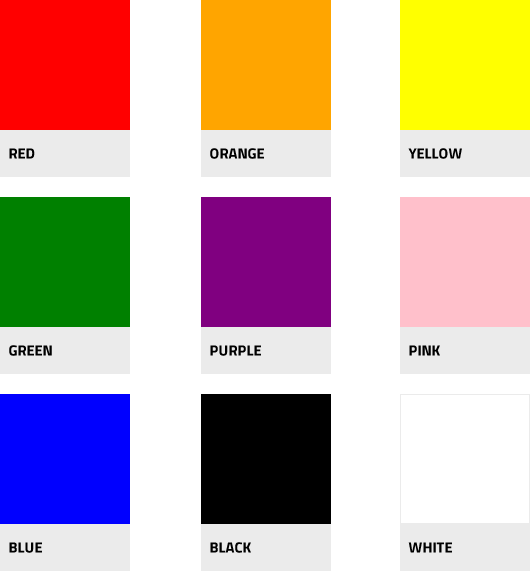











The primary visual element of the overall brand identity. Logo is considered to be the face of the brand which is the key to get your business noticed.
Too often, small business owners think a professionally designed logo is an expensive project, but a perfect logo can be affordably designed making it look better in the eyes of the audience – and is a must for every business.

Your business gets judged in under 5 seconds. When a first impression is often the last impression, having a powerful logo is crucial. It says what your business does and what its values are. It conveys stability and reliability. When your logo looks professional, you look professional.
Create familiarity with your brand by displaying a strong logo on signage, websites, social media, storefronts, vehicles, letterhead, uniforms, business cards and packaging. Over time, a great logo firmly lodges in customers’ minds, builds trust and becomes inseparable from the brand itself.
Branding creates a memorable impression of your business that builds trust, motivates employees and helps in acquiring new customers in no time.
Your brand is the “face” of your company. Make it memorable — and strong enough to leave the desired impression.
Developing a strategic plan for the company can help in achieving long-term financial gain. To optimize the ROI, increase the company’s value and ensure the company meets its financial objectives.
A professional appearance builds credibility and trust. People are more likely to engage with a business that appears polished and legitimate.
When employees understand your mission, they feel the same pride and will work to achieve your shared goals. As it is said “Interesting things happen when the creative impulse is cultivated with curiosity, freedom and intensity.”
Branding enables your company to get referral business. Could you tell a friend about the new shoes you love if you can’t remember the brand? Word of mouth referrals are only possible after you’ve delivered a memorable experience.
Keeping simple yet powerful text will help the customers to remember the logo and build brand awareness. Using maximum two to three fonts will cause less confusion and will convey the message clearly.
Color communicates the idea and carries a meaning, which is why choosing the right colors for the brand is the most important thing to do. The colors bring life to the logo design but should be used according to the brand's image giving it a strong message, whether it’s colorful or simple black and white.
Most effective for ‘fun’ establishment and has a high recognition factor. They allow a realistic portrayal of an item, a theme or a concept.


01. Word marks are trademarks containing words. You can put in as many words as you want but make sure the words are written in plain characters. They protect how the words look like no matter they are in any font, size or color. It is good for companies and brands to create a wordmark logo to communicate the customers what the brand is all about as well as cost effective. The logo designs can also be used when a brand is rebranding with a new logo and brand identity. 02. Lettermarks rely on initials to represent the brand. It acts as a monogram for your business. Use lettermarks to create a visual link between parent companies and subsidiaries. Lettermark logos are quite known in rebranding campaigns. But you might need to spend time in explaining the customers what your brand offers. 03. Brandmark is a logo which represents the brand with or without the company or brand name. Images are more memorable than words that is why these logos are highly popular among small as well as large companies. Although it takes time to recall the brand without the name but for the companies that do it successfully the logo becomes a great asset. 04. Iconic logos represents the brand through icons and symbols and are quite compelling. These logos represents an abstract or a literal representation of your brand or the company. They prove to be very effective for small businesses and startups whose name may be distinctive but not yet widely recognized. An iconic logo is very effective in communicating a brands identity.
Color is a key consideration for all visual materials
The most successful logos are simple in terms of colors. In fact, two of the most basic colors — black and red — are used most frequently. Think of some of the world’s most successful logos, such as Pepsi, Coke and Starbucks, which use just one or two colors each.
Identify the key emotional message you want your logo to communicate and choose colors to convey that emotion:
Color relatability can be generational and gender-specific. Both men and women say blue is their favorite color and brown their least favorite, but women also like purple, whereas men don’t care for it at all. On the other hand, men are slightly more partial to black.

Typefaces are as important as color. Consider what the look of your text says to clients and potential customers:
Yes! It’s important to have a style guide laying out standards for the visuals and copy associated with your brand. A style guide maintains consistency across your organization — no matter how large or small. Here are six elements to think about when developing your guide. After the guide is complete, share it with your employees and revisit it annually to see if updates are needed.
To study the mission is very important. Research on the history of the company to get details and explain in clear words, what the company is all about?
Your style guide should include your logo in various sizes and file formats, and guidelines dictating how and where the logo may be used for making it look better.
Select fonts and sizes according to the company’s standard. A font does everything from representing the brand, to increasing legibility.
The most important thing for the marketing professionals and copywriters who are working on your brand is voice guidelines. Who is speaking? What is the voice of the company? Can you give some background information that helps the user understand how to speak with that voice?
Some brands are instantly recognizable by the color of their logos. These colors are forever associated with the companies. Careful selection of colors will help in recalling the brand easily.
Are there certain types of imagery that fit with your brand style? Provide clear guidelines to simplify selecting photos for creative materials.

